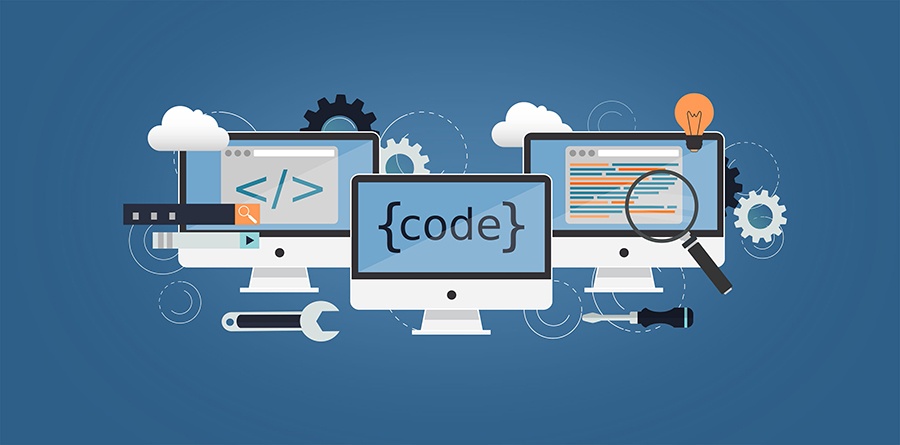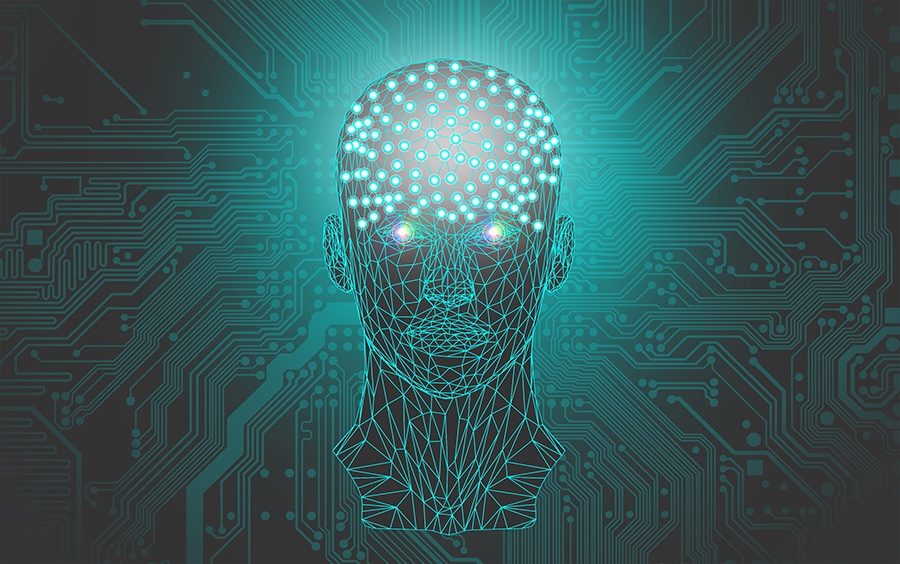Mastering SEO with the Power of Machine Learning and AI
In recent years, the integration of artificial intelligence and machine learning has had a significant impact on the field of search engine optimization (SEO). The use of these technologies has enabled SEO professionals to improve the accuracy and effectiveness of their strategies, resulting in better search engine rankings and increased traffic to their websites. AI and machine learning have become crucial components for any business looking to stay ahead of the competition in the digital landscape.
This blog post will explore the role of artificial intelligence and machine learning in SEO and how they have revolutionized the way we approach search engine optimization. We will delve into the different applications of AI and machine learning in SEO, including the use of natural language processing, predictive analytics, and image recognition. We will also discuss the challenges and limitations that come with these technologies, such as the potential for ethical and legal concerns.
If you’re looking to stay ahead in the world of SEO, understanding the role of AI and machine learning in optimizing your website’s search engine ranking is a must
1. Introduction to Artificial Intelligence (AI) and Machine Learning (ML) in SEO
Artificial intelligence (AI) and machine learning (ML) are rapidly transforming many industries, and SEO is no exception. In this document, we will introduce you to the key concepts of AI and ML and explain how they can be applied to SEO to improve search engine rankings and deliver more targeted and relevant content to users. AI refers to the use of algorithms and computer systems to simulate human intelligence, such as learning, problem-solving, and decision-making. ML is a subset of AI that focuses on the development of algorithms that can learn from and make predictions on data. In SEO, AI and ML can be used to analyze vast amounts of data to identify trends, uncover insights, and improve search engine results. The potential of AI and ML in SEO is vast, and it is essential for businesses and marketers to stay up-to-date on the latest developments in this field to remain competitive in the fast-paced world of digital marketing.
2. AI and ML algorithms used in SEO
Artificial intelligence (AI) and machine learning (ML) have revolutionized the way we approach search engine optimization (SEO) strategies. These digital technologies have enabled us to analyze massive amounts of data and identify patterns that can provide insights and help us make more informed SEO decisions. AI algorithms can now process and learn from search patterns, while ML algorithms can help understand user behavior and improve website ranking. One of the most significant benefits of AI and ML algorithms in SEO is their ability to provide personalized search results based on user preferences and behavior. By leveraging these technologies, we can optimize our websites to create a seamless user experience that drives engagement and conversion rates.
3. How AI and ML improve search engine accuracy and relevance
Search engine algorithms have been evolving at an astonishing pace in the last few years, and the usage of artificial intelligence and machine learning techniques has played an important role in this evolution. With the advances in AI and ML, search engines are now able to analyze and interpret search queries more accurately and deliver relevant search results to users in a faster and more efficient manner. These technologies have enabled search engines to better understand the intent behind each query, learn from user behavior and preferences, and adapt to an individual’s search habits. This has resulted in better ranking and relevance for search results, providing users with an improved search experience. AI and ML are constantly improving the accuracy and relevance of search engines, and it’s no surprise that they have become integral tools in SEO strategies for businesses of all sizes.
4. Benefits of using AI and ML in SEO
Artificial intelligence and machine learning are revolutionizing the way we approach search engine optimization (SEO). The use of AI and ML algorithms can provide a range of benefits for businesses looking to optimize their online presence. Firstly, AI algorithms can help businesses to better understand consumer search behavior, allowing them to better target their content to meet the needs and interests of their audience. This improved targeting can lead to higher click-through rates, increased engagement, and ultimately, improved search rankings. Secondly, machine learning can be used to analyze vast amounts of data, such as website traffic and user behavior, in order to identify patterns and trends. By using this data to inform their SEO strategy, businesses can make more informed decisions and optimize their online presence more effectively. Thirdly, AI-powered SEO tools can help to automate manual tasks, such as keyword research and content creation, allowing businesses to focus on more strategic tasks. Finally, the use of AI and ML can help businesses to stay ahead of the competition, as they can quickly adapt to changes in search algorithms and trends, ensuring that their online presence remains optimized for search engines.
5. AI-powered content generation and optimization
Artificial intelligence and machine learning are revolutionizing the way we approach search engine optimization (SEO). One particular area where AI and ML have been making waves is in content generation and optimization. With AI-powered content generation, tools are now available to create high-quality content at scale, allowing businesses to boost their website’s rankings and visibility. AI-powered tools can analyze existing content and use that data to create new content that is optimized for particular keywords and topics. Additionally, AI can be used to optimize existing content, ensuring it is fully optimized and meets all the necessary criteria for ranking highly in search engine results pages (SERPs). Embracing AI-powered content generation and optimization can lead to significant increases in website traffic, engagement, and ultimately, revenue. However, it is important to remember that AI-powered tools are a complement to the expertise of skilled SEO practitioners, rather than a replacement.
6. Personalization through AI and ML
Personalization through Artificial Intelligence (AI) and Machine Learning (ML) has been a game-changer for businesses across industries, including Search Engine Optimization (SEO). As search engines continue to focus on delivering the most relevant results to users, personalization has become a critical element in SEO. With AI and ML, search engines like Google can analyze vast amounts of data on user behavior and preferences to craft personalized search results. This means that the same search query could yield different results for users based on their search history, location, and other data points. By leveraging personalization through AI and ML, businesses can improve their search engine rankings, enhance user engagement, and ultimately drive more conversions. However, it’s crucial to note that personalization should be used thoughtfully and ethically to ensure that users’ privacy and data security are respected.
7. Predictive analytics and SEO
Predictive analytics is a branch of advanced analytics that uses data, statistical algorithms, and machine learning techniques to predict future outcomes. In the field of Search Engine Optimization (SEO), predictive analytics can be a game-changer. By using machine learning models to analyze large amounts of search data and historical ranking patterns, SEO professionals can predict future search trends and optimize their websites accordingly. This can help them stay ahead of the curve and gain a competitive advantage over their competitors. Furthermore, by leveraging predictive analytics, SEO professionals can make data-driven decisions about content creation and link-building strategies, resulting in improved search rankings and higher website traffic. In this document, we explore how artificial intelligence and machine learning are transforming the field of SEO, with a focus on predictive analytics. Specifically, we will examine how predictive analytics can be used to improve keyword research, identify high-potential content topics, and anticipate changes in search engine algorithms.
8. Link building with AI and ML
Link building is a fundamental facet of search engine optimization (SEO). However, it can be challenging to create high-quality, relevant, and natural-looking backlinks. Artificial intelligence (AI) and machine learning (ML) can significantly improve this process. These technologies automate various tasks, such as backlink analysis, identifying relevant websites, and predicting high-ranking pages. Machine learning algorithms allow for more accurate identification and analysis of backlinks, allowing for a more efficient response to algorithm updates. It enables businesses to find better-qualified leads and anticipate user behavior with greater accuracy. AI can evaluate backlinks based on contextual relevance and identify potential risks for penalties, making it easier to create effective link building strategies that can drive traffic and revenue. With the help of AI and ML, link building has become more data-driven, allowing SEO professionals to make better-informed decisions.
9. AI and ML for competitor analysis
Using artificial intelligence (AI) and machine learning (ML) in search engine optimization (SEO) has become increasingly popular lately. One of the most interesting applications of AI and ML in SEO is competitor analysis. The use of these technologies allows SEO professionals to gather, analyze, and apply insights from competitors’ online activities to improve their own SEO strategy. AI and ML can help to identify competitors, analyze their keywords and content strategies, and uncover patterns in their online behavior. By leveraging the power of these technologies for competitor analysis, SEO professionals can gain a more comprehensive understanding of their market and develop effective strategies that improve performance and boost search rankings. Additionally, ML can also help to identify changes in competitors’ online activity, allowing SEO professionals to respond quickly to new trends and shifts in the market.
10. Future of AI and ML in SEO
Artificial intelligence (AI) and machine learning (ML) are transforming the way search engine optimization (SEO) is performed. With more and more data being generated on the internet each day, it’s becoming difficult for SEO professionals to manually sift through all of it and make informed decisions. However, with advancements in AI and ML, it’s now possible to automate many of these tasks and gain valuable insights quickly. In this document, we’ll explore the future of AI and ML in SEO, including how it’s already being used, what it could mean for the industry in the future, and how you can start implementing these technologies to stay ahead of the curve.
To sum up, incorporating artificial intelligence and machine learning into SEO is becoming increasingly important for businesses and marketers. These technologies offer the ability to analyze large amounts of data, identify patterns, and make more accurate predictions about user behavior and preferences. By leveraging AI and ML in SEO, businesses can optimize their website content and improve search engine rankings, leading to increased web traffic and ultimately, higher revenue. As AI and ML continue to evolve, we can expect to see even more advanced SEO techniques and strategies developed, further enhancing the way we approach search engine optimization.
Frequently Asked Questions
1. What is Mastering SEO with the Power of Machine Learning and AI?
Mastering SEO with the power of Machine Learning and AI has become increasingly important in the digital age. Search engines use various algorithms to rank web pages, and SEO software providers offer ways to optimize keywords and content. However, content marketing experts are now turning to AI technologies to fully understand the user’s search intent and create an effective SEO strategy. Machine learning technology allows marketers to analyze vast amounts of data and predict which keywords and phrases will rank higher on search engines. AI can also help with other aspects of SEO, such as optimizing site structure and content quality. By integrating AI in SEO, the chances of achieving SEO success become much higher, making it an essential component for any online marketing strategy.
2. How does Machine Learning help improve SEO?
Machine learning has brought about a revolution in the world of Search Engine Optimization (SEO). AI can help make sense of vast amounts of data, enhance user experience, and drive desired results. For instance, with the rise of voice search, AI SEO can help optimize content for conversational queries. AI can also create content, suggest keywords, and eliminate redundancies, thereby enhancing SEO efforts. Currently, there are various ways to use artificial intelligence in SEO, such as using an AI tool to analyze site traffic or to optimize content based on keywords. In the future of search engine optimization, deep learning will have a significant impact on SEO. Therefore, optimizing SEO efforts using AI is essential to stay competitive in the digital world.
3. What types of AI techniques are used for SEO optimization?
AI techniques are becoming increasingly important in SEO optimization. Using machine learning algorithms to analyze search traffic and identify patterns is a popular approach to SEO using AI. Many businesses are now using AI to extract and analyze data to find keywords and phrases that will improve their website rankings. On-page SEO, including page structure optimization and content optimization, is one of the most important aspects of SEO, and using AI to improve these aspects can have a big impact on SEO success. The future of SEO looks like it will have an even greater emphasis on AI-powered techniques, with more businesses using machine learning algorithms to analyze search data and optimize their websites accordingly. As such, AI will continue to have a big impact on SEO in the future.
4. How does AI impact SEO rankings?
AI and SEO are two terms that are interrelated, and AI’s impact on SEO rankings is significant. Using AI SEO tools, the SEO community can understand AI’s potential impact on SEO rankings and how it can help search engines provide more accurate and relevant search results. AI can also be used to provide SEO insights into which keywords are being searched the most and what types of content users prefer. In modern SEO, the efficient use of AI is great, allowing marketers to use this feature to make informed decisions about their SEO strategies. Some of the ways AI can help SEO include improving content marketing, boosting keyword research with natural language processing, utilizing machine learning, and analyzing user behavior. By using AI to improve SEO practices, AI will provide greater accuracy, higher rankings, and more targeted traffic to websites.
5. What are the benefits of using Machine Learning and AI for SEO?
There are many benefits to using Machine Learning and AI for SEO. One of the main benefits is that it helps us AT EckCreativeMedia to better understand AI, which we can then use to make more informed decisions when it comes to managing and optimizing digital marketing. By using AI to help with our marketing efforts, we can improve our content creation and optimization by analyzing data and making recommendations based on what is most likely to perform well. Algorithms are constantly evolving and becoming more sophisticated, so using AI to help us manage our SEO efforts can help us to stay ahead of the competition and achieve better results. Additionally, AI can help us to automate certain tasks, freeing up more time to focus on cognitive tasks that can be done better and faster by humans. Overall, using Machine Learning and AI for SEO can help us to improve our marketing efforts and achieve better results.
6. How do Machine and AI help to improve SEO performance?
Machine and AI technologies have revolutionized the field of SEO, providing incredibly efficient and accurate methods for boosting website performance. By using SEO, AI can enable the automation of tedious and time-consuming tasks, thus freeing up manpower for other tasks. Additionally, AI algorithms can easily analyze and decode large amounts of data, which would be nearly impossible for humans to handle in a timely fashion. Not only can AI handle cognitive tasks better and faster than humans, but it can also predict patterns and trends that humans may miss, allowing for more precise and effective optimization strategies. By leveraging these technologies to their fullest potential, businesses can enjoy better visibility, more traffic, and ultimately, increased success.
7. What are the best practices to use when implementing Machine Learning and AI for SEO?
When implementing machine learning and AI for SEO, there are several best practices that can be followed. Firstly, it is important to ensure that data is collected and utilized efficiently. This means identifying valuable data sources and making use of algorithms that are capable of identifying patterns and trends. Additionally, it is important to understand the audience and tailor content accordingly. Machine learning can be utilized to analyze website traffic and identify user preferences, allowing for more personalized and effective content. Finally, testing and experimentation are crucial in order to continue improving the effectiveness of machine learning and AI strategies. By monitoring and adjusting strategies based on the results of testing, businesses can ensure that they are staying ahead in the ever-changing world of SEO.
8. What are the potential risks associated with using Machine Learning and AI for SEO?
Although Machine Learning and AI technologies have revolutionized the way search engines operate and how users interact with them, there are potential risks associated with their use in SEO. One major risk is the susceptibility to algorithm biases that can lead to discriminatory practices or promote false information. This is because AI models can learn from historical data, which may contain biases or inaccuracies. Another risk is the possibility of over-reliance on automation, which can lead to reduced transparency and understanding of how decisions are made. Additionally, there is a danger that algorithms can be manipulated, leading to spam or black-hat SEO practices. Finally, there is the concern that the use of AI and machine learning may lead to job displacement for human SEO professionals. Therefore, businesses must carefully consider the potential risks and take measures to mitigate them while leveraging the benefits of these powerful technologies.
9. What steps should I take to ensure the successful implementation of Machine Learning and AI for SEO?
To ensure the successful implementation of Machine Learning and AI for SEO, there are a few steps that you need to take. Firstly, you need to have clear objectives and goals for your SEO campaign. This will help you to identify the areas where Machine Learning and AI can add value. Secondly, you need to create a data-driven approach where you collect and analyze relevant data on user behavior, search trends, and other metrics that can help you to better understand your audience. This will enable you to use Machine Learning algorithms to identify patterns and create predictive models. Finally, you need to integrate and automate your workflows to ensure that AI can assist you in optimizing your SEO campaigns. This may involve implementing software solutions, training your team in AI, and continuously testing and evaluating your strategies to ensure that they are delivering the desired results.
10. Are there any industry standards or guidelines for using Machine Learning and AI for SEO?
Currently, there are no official industry standards or guidelines for using Machine Learning (ML) and Artificial Intelligence (AI) for Search Engine Optimization (SEO). However, some best practices can be followed, such as creating relevant and authentic content that aligns with the needs of the audience. Another important aspect to consider is the optimization of technical SEO, which includes website loading speed, accessibility, mobile-friendliness, and user experience. Furthermore, significant data points, such as website traffic, click-through rates, and conversion rates, can be used to train algorithms and improve ML models used for SEO. While guidelines and standards will continue to emerge as AI and ML continue to advance in the field of SEO, for now, it is essential to experiment and monitor the performance to identify the most effective strategies that work for your website.
Pros and Cons
Pros:
- Increased efficiency: Machine learning and AI can automate many SEO tasks, such as keyword research, content optimization, and link building, allowing marketers to focus on higher-level strategy and analysis.
- Better accuracy: AI algorithms can analyze vast amounts of data quickly and accurately, making it easier to identify patterns and trends in search behavior, audience interests, and other relevant factors that can impact SEO performance.
- Personalization: AI can analyze user behavior and preferences to deliver personalized search results, which can improve user experience and increase engagement.
- Predictive insights: Machine learning algorithms can use historical data to make predictions about future search trends, allowing marketers to plan and optimize their SEO strategy accordingly.
- Competitive advantage: Marketers who master SEO with machine learning and AI will be better equipped to stay ahead of the curve in a rapidly evolving industry.
Cons:
- High cost: Implementing AI and machine learning for SEO can be expensive, as it requires significant investment in technology, software, and data analysis.
- Limited transparency: AI algorithms can be complex and difficult to understand, making it challenging to determine how they make decisions and optimize SEO performance.
- Risk of over-reliance: Relying too heavily on AI for SEO can lead to a lack of creativity and originality in content creation and strategy development.
- Ethical concerns: There are ethical considerations surrounding the use of AI and machine learning in SEO, such as the potential for bias and the responsibility to protect user privacy.
- Limited application: AI and machine learning may not be suitable for all types of SEO tasks, and some tasks may still require human intervention and expertise.
Overall, mastering SEO with the power of machine learning and AI has the potential to deliver significant benefits in terms of efficiency, accuracy, personalization, and competitive advantage. However, it also comes with potential drawbacks, such as high cost, limited transparency, and ethical concerns, that should be carefully considered before implementation. Call us today to find out how we can use AI and ML for your own website and achieve the internet presence that you deserve.
- The Post-Search Era Is Here: Why IP Targeting Becomes the New Visibility Layer in 2026 - December 29, 2025
- Geotargeted Marketing Strategies: Reaching Customers in Your Local Area - December 15, 2025
- How IP Targeting Helps Student Traders Enter the Market Safely, Smartly, and With Real Discipline - December 3, 2025












